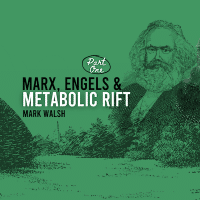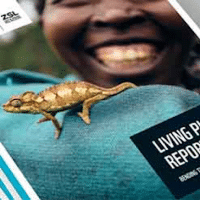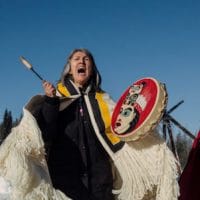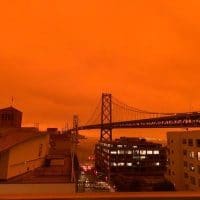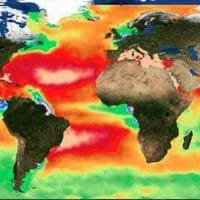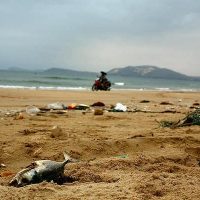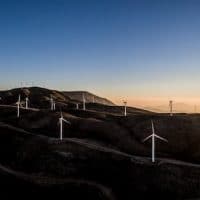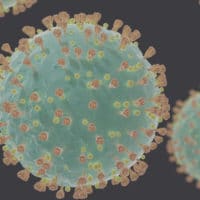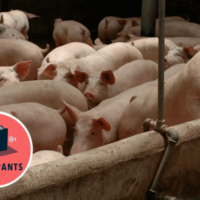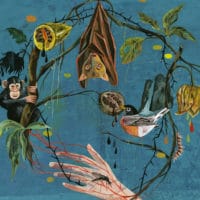-
Climate Crisis and Imperialism: The Unfair Demonization of the East
Last week in the presidential debate, Donald Trump said “Look at China, how filthy it is. Look at Russia. Look at India. It’s filthy. The air is filthy,” when asked about his decision to pull out of the Paris Climate Accord.
-
How India’s Modi is changing laws to help imperialists dominate the country’s agriculture
The fact that the Center made unilateral and fundamental changes in agricultural marketing arrangements that fall within the State List of the Seventh Schedule of the Constitution was a blow against federalism.
-
Greenwash
Alethea Warrington describes how the fossil fuels industry hopes to change its image but not its practice.
-
Triple Crisis in the Anthropocene Ocean. Part Three: The heat of 3.6 Billion Atom Bombs
Since 1987 the ocean has warmed 4.5 times as fast as in the previous three decades. The Intergovernmental Panel on Climate Change (IPCC) projects that even if emissions are substantially reduced, by 2100 the ocean will heat 2 to 4 times as much as it has since 1970–and if emissions are not cut, it will heat 5 to 7 times as much.
-
Marx, Engels and Metabolic Rift – Part One
Despite our assumed position as Earth’s dominant species, we have seen our society effectively shut down by a virus. Friedrich Engels’s caution against hubris, written over a century and half ago, seems particularly apt.
-
American Science: Triumph or Tragedy?
A historian of science himself, Conner is fully cognizant of the accomplishments of American science and technology. In an earlier book, A People’s History of Science: Miners, Midwives and “Low Mechanicks” (2005), he demonstrated the contributions of ordinary citizens to science, but he also warned of the corruptive potential of corporate money and military power.
-
Eco-socialism and/or De-growth
Ecosocialism and the de-growth movement are among the most important currents of the ecological left. Ecosocialists agree that a significant measure of de-growth in production and consumption is necessary in order to avoid ecological collapse.
-
The Dying Planet Report 2020
The report, released September 10th, describes how the over-exploitation of ecological resources by humanity from 1970 to 2016 has contributed to a 68% plunge in wild vertebrate populations, inclusive of mammals, birds, amphibians, reptiles and fish.
-
All eyes on Wet’suwet’en
Suzanne Dhaliwal, in collaboration with Indigenous Climate Action, explains how the struggle to end Canada’s colonial violence is continuing in the face of fossil fuel extractivism.
-
Gov’t silent as climate change unfolds
From megafires, extreme heat waves, summer snow storms and hurricanes, millions across the United States are witnessing the effects of climate change first hand.
-
Triple crisis in the Anthropocene Ocean
Scientists call them a ‘deadly trio.’ If acidification, oxygen loss, and overheating are not ended soon, a massive die-off of ocean life may be unstoppable.
-
‘What stage of capitalism is this?’ Hedge fund $3 billion richer thanks to wager on wildfire insurance claims
With over 100,000 people displaced by wildfires raging across California, Baupost Group collected more than $3 billion in July after betting on insurance claims against embattled utility company PG&E.
-
Dead Zones: Industrial agriculture versus ocean life
Worldwide, there are now over a thousand coastal areas where fish can’t breathe. The nitrogen that makes crops grow is also destroying offshore ecosystems.
-
Amazon women warriors and revolutionary pants
For much of human history, most people—men and women—wore loose fitting robes of various types to cover their bodies. It is thought that trousers were invented relatively recently in human history, around 1000 BCE, so that people could be more comfortable riding horses.
-
‘Either you are fighting to eliminate exploitation or not’: A leftist critique of the Green New Deal
Canadian Dimension in conversation with essayist, researcher and historian Max Ajl
-
Engels on nature and humanity
In the light of the current pandemic, here is a rough excerpt from my upcoming short book on Engels’ contribution to Marxian political economy on the 200th anniversary of his birth.
-
COVID-19 and Circuits of Capital
COVID-19, the illness caused by coronavirus SARS-CoV-2, the second severe acute respiratory syndrome virus since 2002, is now officially a pandemic. As of late March, whole cities are sheltered in place and, one by one, hospitals are lighting up in medical gridlock brought about by surges in patients.
-
How global agriculture grew a pandemic
What are the underlying structural reasons for the coronavirus outbreak? According to Monthly Review Press author Rob Wallace, you have to look at global agriculture if you really want to understand the nature of global outbreaks.
-
“Capitalism is a disease hotspot”
The real danger of each new outbreak is the failure or—better put—the expedient refusal to grasp that each new Covid-19 is no isolated incident. The increased occurrence of viruses is closely linked to the proliferation of capitalist food production and distribution.
-
Notes on a novel coronavirus
The virus’s final penetrance worldwide will depend on the difference between the rate of infection and the rate of removing infections—by recovery or death. If the infection rate far exceeds removal, then the penetrance may approach the whole of humanity, although there will likely accrue large geographic differences.

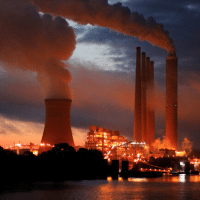

![An operation of fossil fuel giant ExxonMobil near Chicago, USA [Richard Hurd, Flickr CC BY 2.0]](https://mronline.org/wp-content/uploads/2020/10/greenwash-exxon-200x200.jpg)

